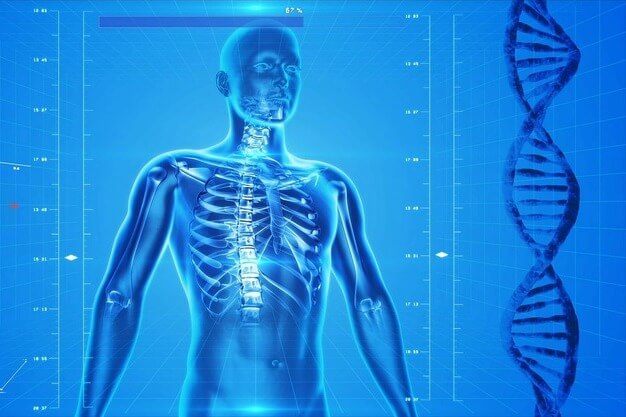Does risk of osteoporosis increase with age in menopausal women?
December 2019
Osteoporosis is a condition in which the bones weaken, increasing the risk of sudden and unexpected fractures.
The term ‘osteoporosis’ means porous bones and the condition results in significant loss of bone mass and strength. There is a direct correlation between the development of osteoporosis and the lack of estrogen during menopause. Estrogen is the hormone which plays a crucial role in overall health, and it declines following menopause. The post-menopausal period is characterized by the resorption or breakdown of existing bones and formation of new ones. Therefore, low levels of estrogen during menopause can cause loss of bone mass.
"Since menopausal women above the age of 50 years are more prone to osteoporosis, it is important for them to understand the onset, warning signs, diagnosis and management of the disease," says Dr Vineesh Mathur, director - division of spine, Institute of Musculoskeletal Disorders and Orthopaedics, Medanta, The Medicity, Gurgaon.
What causes osteoporosis?
The exact cause of osteoporosis is unknown. Our bones are made of living and growing issues with an outer shell of dense bones wrapping a sponge-like bone. When osteoporosis strikes, the holes inside the sponge part of the tissue increase in size and number, weakening the interiors of the bone. "Till the age of 30 years, our body builds more bones than it loses but this process starts reversing post the age of 35 years leading to a loss in bone mass. When the bone loss aggravates it causes osteoporosis," he adds.
Warning signs
A calcium-deficient diet, owing to inadequate intake over time, may lead to osteoporosis.
Osteoporosis is commonly known as the ‘silent disease’ because the symptoms cannot be easily detected. A person may be aware of the disease only when a sudden bump or fall causes a fracture due to weak bones. The symptoms include:
- A collapsed vertebrae
- Sloping shoulders
- Back pain
- Spinal deformities such as hunched posture
- Curve in the back
Risk factors:
- Age: This is a significant risk factor as the bone strength and density naturally declines as one grows older.
- Gender: Women above the age of 50 years are more prone to risk as compared to men. Factors such as having lighter and thinner bones and menopause increase risk.
- Body weight and structure of bones: Women who are thin and petite are at a greater risk of developing osteoporosis because they have lesser bones as compared to women with more body weight.
- Family history: A family history of osteoporosis among parents or grandparents increases the risk.
Preventive measures:
Consuming calcium-rich foods such as milk and dairy products is recommended.
- 1. Exercise and engage in physical activities regularly. This helps make the bones and muscles stronger, thereby preventing bone loss apart from helping you stay active. The best method of preventing osteoporosis to do weight-bearing exercises like walking, jogging, dancing and playing tennis three to four times a week. Strength and balance exercises are also recommended.
- 2. Consuming calcium-rich foods such as milk and dairy products, seafood, canned fish like salmon and sardines, dark green leafy vegetables, such as kale, collards and broccoli and breads made with calcium-fortified flour is recommended as calcium helps in increasing bone strength
- 3. For those who are lactose-intolerant, consuming lactose-free foods that are high in calcium, such as leafy green vegetables, salmon, and broccoli and lactose-free dairy products is recommended
- 4. Our body uses vitamin D to absorb calcium and increasing access to the same is beneficial. Exposure to the sun by being outdoor for 20 minutes daily and consuming vitamin D rich foods such as eggs, fatty fish like salmon, cereal and milk fortified with vitamin D can help.
- 5. Limit the consumption of alcohol and smoking. This is because smoking affects the formulation of estrogen hormone which protects the bones.
- 6. Avoid certain medications like steroids, certain drugs used to treat seizures (anticonvulsants), blood thinners (anticoagulants), and thyroid medications as they aid bone loss. In case these medications are necessary, they must be supplemented with lifestyle changes and diet to reduce the adverse effects.
Also read : Expert winter skin care tips for your kids
About Dr Bedekar Hospital For Women And Children in Thane:
Dr Bedekar Hospital Thane Offers Menopause clinic in thane.
Do Get in Touch to Book Appointment With Our Experienced Team of Doctors.
Talk to Us On 022 2542 1438 / 9820913256 Or Email Us At bedekarhospital@gmail.com
Happy to Help!
Share This:
Source: www.msn.com



